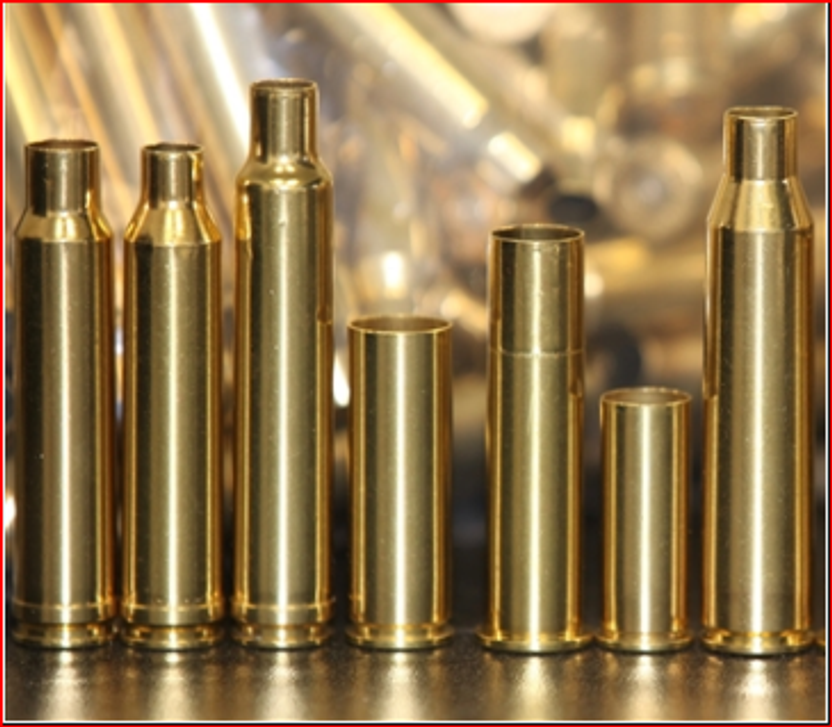Why is brass used for ammunition and reloading?
Posted by nyllah123 on 17th Sep 2025
The Unique Properties of Brass Casings for Reloading
Brass is widely recognized as one of the most favored materials for ammunition cartridges. Its popularity stems from various factors, such as its ease of reloading, exceptional durability, and high resistance to corrosion.
Brass cartridges have a long-standing history, spanning nearly two centuries. The initial development of brass cartridges began in 1846, but it took several decades of continuous refinement to enhance their accuracy and reloading capabilities.
Throughout the last seven decades, brass cartridges have undergone continuous refinements. Extensive ballistic research and development have been conducted to optimize the performance of brass casings in conjunction with the powder, primer, and bullet. The inherent flexibility and strength of brass enable it to expand appropriately under pressure within the chamber, maintaining its power, accuracy, and structural integrity. As a result of these advancements, brass cartridges have firmly established themselves as one of the premier choices in the firearm industry.
Brass vs. Steel Ammo: Why Brass Wins for Reloaders
The Cost Savings of Reloading Once-Fired Brass
- Brass Offers Reusability: One of the primary advantages of brass is its reusability, which is a major factor behind its popularity. Gun owners and hunters often opt for brass because it can be easily reloaded. Many individuals choose to retrieve and reload their brass casings as a cost-effective alternative to purchasing new cartridges. In fact, there is a consistent demand for used brass shells among gun shops and fellow shooters. We even buy it back through our Cash for Brass program. When reloading your ammunition, the brass casing tends to be the most significant expense in the overall process.
Durability and Safety: Why Brass Cartridges Don't Jam
- Brass Demonstrates Reliability: While brass maintains its flexibility, it exhibits remarkable reliability. Unlike aluminum or steel cased cartridges, brass is less prone to getting stuck or jammed in the firearm. This makes it an ideal choice for shooters who engage in high-volume shooting sessions. Another notable aspect is the softness of the metal itself, which enables the identification of signs of wear or excessive pressure. These indicators allow reloaders to identify potential failure points and take corrective measures before any harm or damage occurs. In contrast, harder brass shells may not exhibit such deformation but instead may disintegrate entirely, posing a risk of firearm damage.
- Brass, known for its exceptional softness, exhibits rapid expansion and contraction when fired. This expansion of the neck creates a seal in the chamber, effectively preventing the backward flow of noxious gases. In comparison to steel ammunition, brass offers several advantages, including a cleaner performance and a significantly reduced risk of firearm malfunction.
- Brass cartridges are highly unlikely to cause damage to your firearm. They have a low risk of scratching gun parts, which helps preserve the aesthetic features of your firearm. Moreover, when brass is rubbed against other metals, it does not produce sparks.
Where to Buy Bulk Reloading Brass Online
Although brass casings may have a slightly higher price tag, their functional advantages make them a worthwhile choice for both performance and reloading purposes. Compared to metals like steel, brass offers reliability, ease of use, and resistance to corrosion. As long as the casings are thoroughly inspected and free from damage, brass can be reused multiple times for reloading.
For inquiries about bulk brass, whether it's once-fired brass or range brass, please get in touch with our Capital Cartridge sales team. We offer sorted, mixed headstamps, and washed brass suitable for individual reloading or bulk quantities for ammunition manufacturing.

